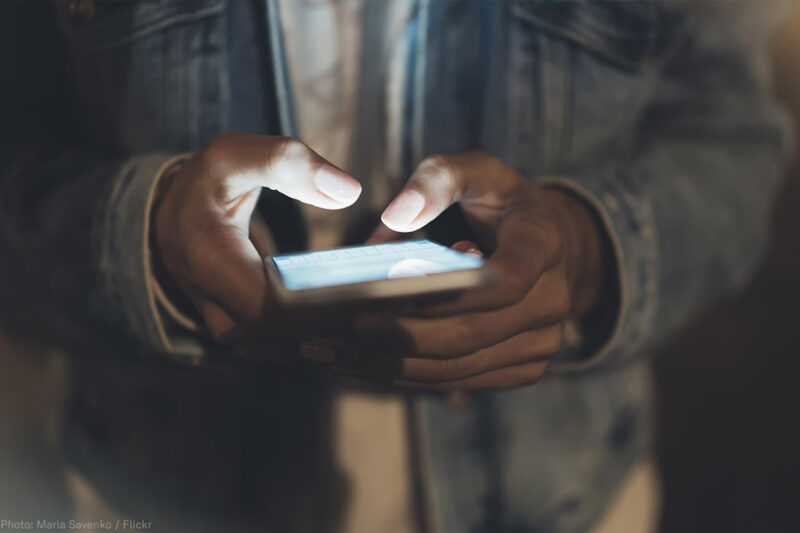
School is back in session, and that means school administrators may be back to surveilling students on social media and unjustly disciplining them for what they say on it.
We’ve seen both of these troubling trends before. And in today’s era of inspiring student activism, they may become all the more prevalent. Moreover, experience shows that discipline for student expression is not always applied evenhandedly, and can be invoked to silence youth of color and other marginalized students.
Fortunately, the First Amendment protects student speech. While public schools can regulate student speech that substantially disrupts the functioning of the school, as the Supreme Court held in the landmark 1969 case Tinker v. Des Moines, students do not lose their First Amendment rights simply by virtue of walking into school. Nor do they give up their right to speak out outside of school simply by virtue of being a student. To the contrary, outside of school, students enjoy essentially the same rights to protest and speak out as anyone else.
In the last five years, more than 100 public school districts and universities have hired companies to monitor the social media of their students. At least one district asked a surveillance company for alerts on any post mentioning “protest” or “walkout.” Another surveillance company offered to help public schools monitor “behavioral information” about specific individuals, including keeping tabs on their conversations with others.
Know Your Rights: Students’ Free Speech Rights
Much like other forms of surveillance, government monitoring of students’ social media accounts — which often includes surveillance of their lives outside of school — can have a disproportionate effect on people of color.
For example, after an Alabama town contracted with a consulting firm to watch students’ social media, more than 85 percent of the students expelled due to social media posts in a one-year period were students of color, even though more than 60 percent of the town’s population is white. As the Southern Poverty Law Center reported, one student was expelled for wearing a sweatshirt depicting her murdered father, and another was expelled for posting a photo of himself “holding too much money.”
Elsewhere, the ACLU has challenged school districts that disciplined students of color over photographs taken while dancing at home, with the schools alleging that these constituted “gang-related messages.”
This disproportionate effect is perhaps not surprising, given that some school officials around the country have disciplined students of color who, in an effort to criticize and push back against the racist speech of classmates, reposted it. One school in North Carolina suspended two Black students for reposting a video of a white classmate using a racial slur while criticizing gun control laws. Similarly, an Ohio school suspended two students for reposting a classmate’s racist remarks on Snapchat.
Schools are meant to teach the Constitution — and follow it. That means respecting equality and freedom of speech. And when students speak out on the political issues of the day, it should lead to engagement, not wrongheaded punishment.


